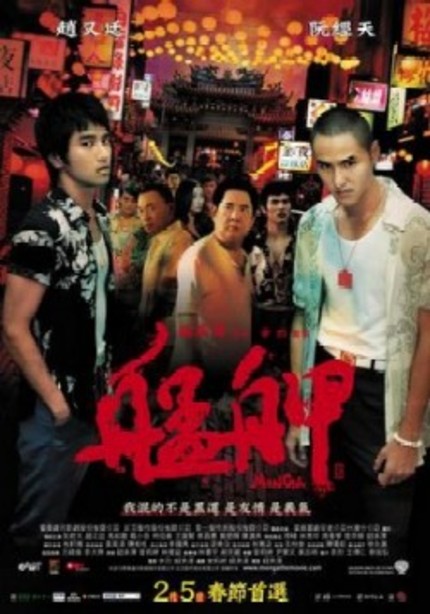Sitges 2010: MONGA Review

For his latest directorial effort, seasoned Taiwanese actor Doze Niu tells the semi-autobiographical story of a group of adolescent hoodlums growing up in 80s Taipei. Named after the old district in which it is set, MONGA begins with the arrival of new kid Mosquito (Mark Chao) at the local high school.
After he is targeted by a local bully, Mosquito is taken in by the most powerful kid in school, Dragon (Rhydian Vaughan) - the son of a local gangster, and before long Dragon's tight-knit gang of four has become five. As Monk (Ethan Ruan), the brains of the outfit, points out: it takes five fingers to make a fist, after all.
The first half of the film covers Mosquito's first summer in the gang, as he starts to reap the benefits that come with being part of a powerful team. He swears allegiance to the gang and takes a blood oath with his brothers, declaring that although they were not born together they are prepared to die together. There are numerous opportunities to test these loyalties as their Temple Front gang clashes with their Back Alley rivals. That is until a new outfit from the Mainland, fronted by Grey Wolf (director Niu), an old flame of Mosquito's mother, arrives on the scene, determined to muscle in on the action.
As the mood of the characters shift in the second half, so does the tone and pace of the film. The quirky, almost frivolous style of the earlier scenes makes way for a more sombre and stately atmosphere as the realities of gang life cast a dark shadow over Mosquito, Monk, Dragon and the rest of their boys club. Unsurprisingly, loyalties are put to the test and the realisation that their idealistic, exuberant blood pacts may not bind them together as tightly as they had once thought reaps predictably tragic results for the five brothers.
MONGA is an adeptly staged and beautifully designed film, exuding a grandiose confidence that makes this tale of brotherhood feel much larger and grander than it in fact is. It approaches its material with a youthful exuberance and energy that is so often lacking in Taiwanese Cinema and in the first half particularly, whips along at a cracking pace. Splicing high school antics, fantasy sequences, back alley knife fights and riotous nights on the town together seamlessly, the first hour feels like one long montage of what it means to be a gangster, and to belong.
Being an Asian film dealing with young men and loyalty, there is an element of homoeroticism simmering under the surface of these tightly wound relationships, with the guys showing precious little interest in the packs of girls who fawn over them, compared with their deep-rooted feelings for each other. Their declarations of loyalty to each other come uncannily close to marriage vows, and their willingness to intermingle their blood couldn't be further removed from Mosquito's bashful attempts to woo the ladies. Not only does he target a prostitute, but one who is facially scarred - posing as little of a threat to him as possible. He then proceeds to share nothing more with her than his headphones and a promise to take her away with him one day. The objects of Mosquito's real affections could not be made any clearer.
The performances are uniformly solid, with Mark Chao as Mosquito and Ethan Ruan as Monk particular standouts, as well as Ma Ju Lung as their unassuming, yet brutal boss and in a large cast of young performers there is barely a duff line given. In fact the only real lamentation with MONGA is that while its style and setting might be refreshing for a Taiwanese film, its plot as a coming-of-age hoodlum yarn is surprisingly conventional. Almost from the start it is clear exactly where these boys are heading and there is scarcely a surprise to be had along the way.
The result is a film that shows great promise ahead for its director and young cast, and marks another notable milestone in the current new wave of Taiwanese Cinema, without ever quite being a mould-breaking classic in its own right. That said, however, Doze Niu may have struck just the right balance of new elements and recognisable genre staples to see MONGA become a healthy international success. Only time will tell.







